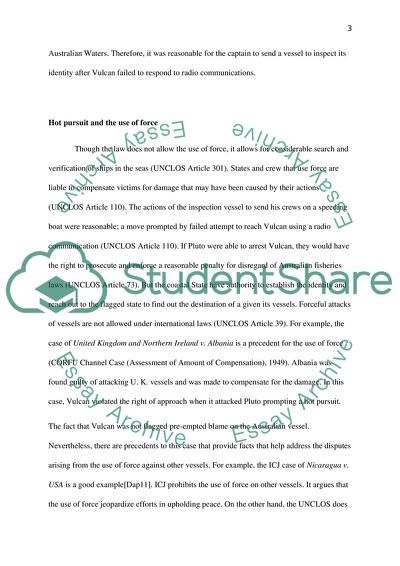Cite this document
(“Law of the Sea: Hot Pursuit Coursework Example | Topics and Well Written Essays - 1750 words”, n.d.)
Law of the Sea: Hot Pursuit Coursework Example | Topics and Well Written Essays - 1750 words. Retrieved from https://studentshare.org/law/1685532-law-of-the-sea-hot-pursuit
Law of the Sea: Hot Pursuit Coursework Example | Topics and Well Written Essays - 1750 words. Retrieved from https://studentshare.org/law/1685532-law-of-the-sea-hot-pursuit
(Law of the Sea: Hot Pursuit Coursework Example | Topics and Well Written Essays - 1750 Words)
Law of the Sea: Hot Pursuit Coursework Example | Topics and Well Written Essays - 1750 Words. https://studentshare.org/law/1685532-law-of-the-sea-hot-pursuit.
Law of the Sea: Hot Pursuit Coursework Example | Topics and Well Written Essays - 1750 Words. https://studentshare.org/law/1685532-law-of-the-sea-hot-pursuit.
“Law of the Sea: Hot Pursuit Coursework Example | Topics and Well Written Essays - 1750 Words”, n.d. https://studentshare.org/law/1685532-law-of-the-sea-hot-pursuit.


